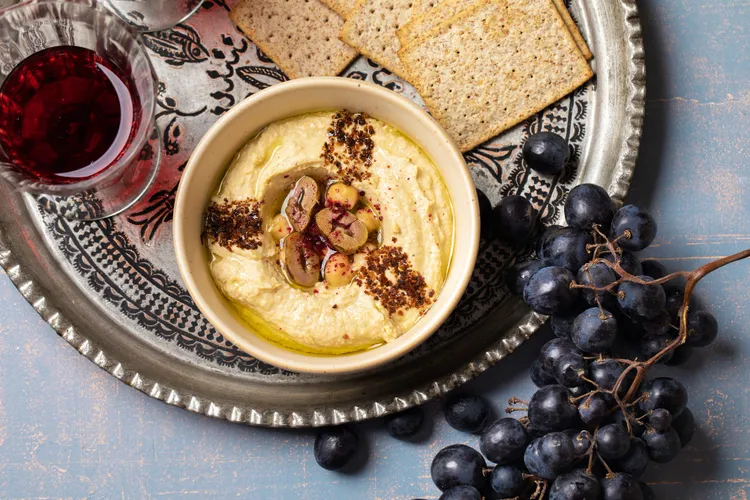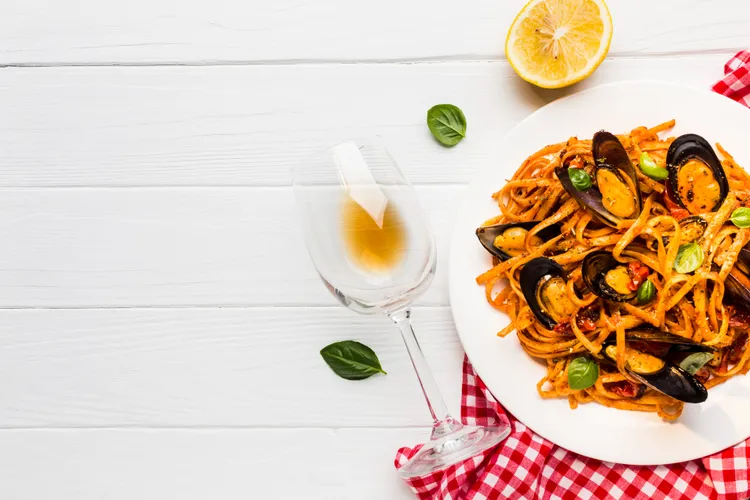Avoid These 10 Foods at Night: What You Eat Before Bed Matters
We’ve all had those nights - tossing and turning, stomach gurgling, and regretting that late-night snack. While many factors contribute to poor sleep, what you eat in the hours leading up to bedtime plays a surprisingly big role. Certain foods can sabotage your sleep quality, disrupt digestion, and even pack on unwanted pounds. If you want to wake up feeling refreshed and energized, it’s time to take a closer look at your nighttime eating habits. We’ll uncover 10 common foods you should avoid at night, and why they might be messing with your body more than you think.

- Spicy Foods
Why to Avoid:
Spicy dishes like chili, curry, or hot wings may be delicious, but they often contain capsaicin - a compound that raises body temperature. This can interfere with your body's natural cooling process needed for restful sleep.
The Risks:
- Indigestion or heartburn
- Night sweats
- Fragmented sleep
Tip: Save the spice for lunch instead of dinner.
- Chocolate
Why to Avoid:
Chocolate contains both caffeine and theobromine, stimulants that can keep your nervous system fired up long after dessert is over.
The Risks:
- Delayed sleep onset
- Increased heart rate
- Nighttime restlessness
Tip: Opt for a caffeine-free herbal tea or a few pieces of fruit instead.
- Cheese and Other Aged Dairy
Why to Avoid:
Aged cheeses contain tyramine, an amino acid that can trigger the release of norepinephrine, a brain stimulant. Heavy dairy is also hard to digest and may lead to discomfort.
The Risks:
- Overstimulation
- Digestive unease
- Headaches in sensitive individuals
Tip: If you’re craving dairy, go for a small serving of plain Greek yogurt.
- Fatty or Fried Foods
Why to Avoid:
Foods high in saturated fat (like fries, fried chicken, or burgers) take longer to digest, which means your body has to work overtime when it should be winding down.
The Risks:
- Acid reflux
- Poor sleep quality
- Weight gain
Tip: Choose grilled or steamed options at dinnertime.
- Tomato-Based Sauces
Why to Avoid:
Tomatoes are highly acidic and can lead to acid reflux or heartburn, especially when lying down after eating.
The Risks:
- GERD symptoms
- Interrupted sleep
- Chest discomfort
Tip: If you love Italian food, have it for lunch instead of dinner - or use a non-tomato-based sauce at night.
- Red Meat
Why to Avoid:
Red meat is high in protein and fat, which means it takes a long time to digest. Eating a large steak dinner before bed can force your body to focus on digestion rather than rest and repair.
The Risks:
- Restless sleep
- Nighttime bloating
- Sluggishness in the morning
Tip: Choose lean proteins like fish or plant-based options if you’re eating dinner late.
- Ice Cream and Sugary Treats
Why to Avoid:
Late-night sugar spikes can lead to a blood sugar rollercoaster that may disrupt your sleep cycle. Additionally, dairy-based desserts can be difficult to digest.
The Risks:
- Nighttime awakenings
- Sugar cravings the next day
- Increased fat storage
Tip: Try frozen bananas or a small square of dark chocolate (earlier in the evening).
- Citrus Fruits
Why to Avoid:
Though healthy during the day, citrus fruits like oranges, lemons, or grapefruits are acidic and can trigger reflux symptoms, especially if eaten close to bedtime.
The Risks:
- Acid reflux
- Throat irritation
- Poor sleep posture from discomfort
Tip: Switch to low-acid fruits like bananas or pears before bed.
- Coffee and Caffeinated Teas
Why to Avoid:
This one might seem obvious, but many people don’t realize how long caffeine stays in your system - up to 6-8 hours! Even decaf coffee contains small amounts of caffeine.
The Risks:
- Trouble falling asleep
- Increased bathroom trips
- Lighter sleep stages
Tip: Stick to herbal teas like chamomile, peppermint, or rooibos after 3 PM.
- Alcohol
Why to Avoid:
Alcohol may make you feel sleepy at first, but it actually disrupts your sleep cycle, especially REM sleep, which is essential for brain and body recovery.
The Risks:
- Fragmented sleep
- Night sweats
- Morning grogginess
Tip: If you drink, keep it moderate and stop at least 3 hours before bed.
Bonus Tips for Better Sleep Through Nutrition:
- Time Your Last Meal: Eat dinner at least 2–3 hours before bedtime.
- Portion Control: Avoid heavy meals late at night.
- Watch Your Liquids: Too much water close to bedtime can lead to frequent trips to the bathroom.
- Sleep-Friendly Foods: Consider foods rich in magnesium and tryptophan (like almonds, oats, turkey, and bananas).
What you eat at night doesn’t just affect your waistline - it impacts how well you sleep, how you feel in the morning, and even your long-term health. By steering clear of these 10 foods before bed, you can give your body the rest it needs and avoid the discomfort that comes with poor dietary choices at night.
So next time you’re tempted by that midnight slice of pizza or bowl of ice cream, ask yourself: Is it worth the sleep disruption?
Sleep well, eat smart, and wake up better.









